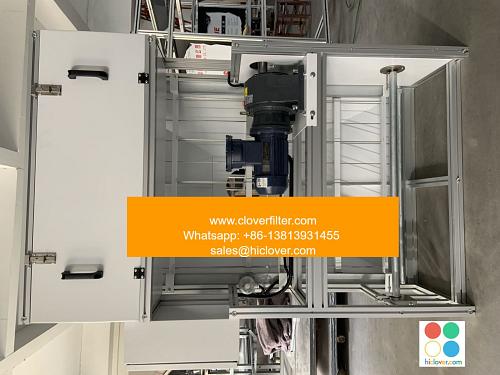Air Filter Solutions for Automotive Applications

The importance of air filtration in automotive applications cannot be overstated. A well-designed air filter is crucial for ensuring optimal engine performance, fuel efficiency, and emission control. In this article, we will delve into the world of air filter solutions for automotive applications, exploring the various application areas and highlighting the key benefits of advanced air filtration systems.
Introduction to Automotive Air Filters
Automotive air filters are designed to capture airborne contaminants such as dust, pollen, and other particles that can enter the engine through the air intake system. A high-quality air filter is essential for preventing engine damage and maintaining optimal engine performance. The air filter market for automotive applications is driven by the growing demand for cleaner emissions, better fuel economy, and improved engine durability.
Key Application Areas
Air filter solutions for automotive applications can be broadly categorized into several key areas:
* Passenger Vehicles: Air filters for passenger vehicles are designed to provide optimal engine protection and performance while minimizing emissions and fuel consumption.
* Commercial Vehicles: Air filters for commercial vehicles, such as trucks and buses, require high-performance filtration to handle the demands of heavy-duty driving and long-distance hauling.
* Off-Highway Vehicles: Air filters for off-highway vehicles, including construction and agricultural equipment, must be designed to withstand the rigors of heavy-duty use and harsh environments.
Types of Air Filters
There are several types of air filters available for automotive applications, including:
* Panel Filters: Panel filters are the most common type of air filter and are designed for easy installation and low maintenance.
* Conical Filters: Conical filters offer improved airflow and increased filtration efficiency compared to traditional panel filters.
* Nano-Fiber Filters: Nano-fiber filters utilize advanced filtration technology to capture ultra-fine particles and provide exceptional engine protection.
Benefits of Advanced Air Filtration Systems
The benefits of advanced air filtration systems for automotive applications are numerous and include:
* Improved Engine Performance: Advanced air filters can help to increase horsepower and torque while reducing emissions and fuel consumption.
* Extended Engine Life: By capturing airborne contaminants, advanced air filters can help to extend engine life and reduce maintenance costs.
* Enhanced Fuel Efficiency: Advanced air filters can help to improve fuel economy by reducing airflow restriction and minimizing engine load.
Conclusion
In conclusion, air filter solutions for automotive applications play a critical role in engine performance, fuel efficiency, and emission control. By understanding the various application areas and types of air filters available, automotive manufacturers and consumers can make informed decisions about the best air filter solutions for their needs. As the demand for cleaner emissions, better fuel economy, and improved engine durability continues to grow, the importance of advanced air filtration systems will only continue to increase. It seems like you forgot to include the prompt.
Please go ahead and provide the prompt, and I’ll do my best to assist you!

